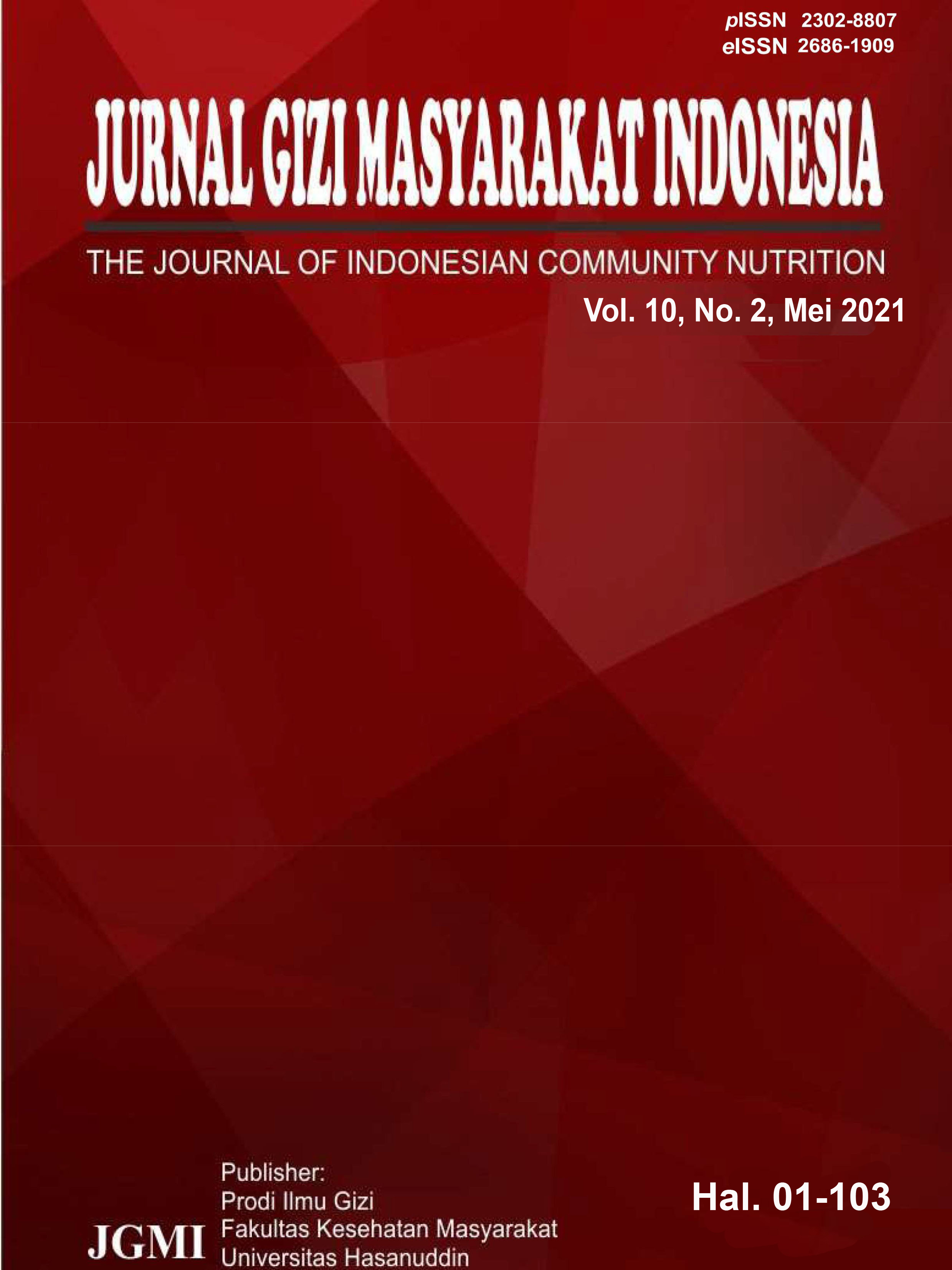The Relationship Between Dietary Habit And Nutrition Knowledge With The Incidence Of Chronic Energy Deficiency In Pregnant Women At Sudiang Health Care Center City Of Makassar
Hubungan antara Pola Konsumsi dan Pengetahuan Gizi dengan Kejadian Kurang Energi Kronik pada Ibu Hamil di Wilayah Kerja Puskesmas Sudiang Kota Makassar
DOI:
https://doi.org/10.30597/jgmi.v10i1.12798Abstract
Introduction: The maternal mortality can be caused by one of the indirect factors that has a major effect on pregnancy complications that is Chronic Energy Deficiency (CED). In nationally, the risk of CED is at the level of moderate public health problems (10-19%). One of the causes of emergency of CED is low food intake and nutrition knowledge. Purpose: This study aims to determine the relationship between dietary habit and nutritional knowledge with the incidence of CED in pregnant women. Material and Methods: This research is an observational analytic study with cross sectional design. The sample size was 104 pregnant women with purposive sampling technique. The data collected is the characteristics of respondents, the SQ-FFQ questionnaire, the nutrition knowledge questionnaire, and LiLA size of respondents by primary and secondary data. Data analysis was performed using univariate and bivariate analysis. Result: The results showed that there were 26,0% of pregnant women suffering from CED with the majority of respondents having good energy intake (53,8%), good protein intake (57,7%), lack of fat intake (72,1%), good carbohydrate intake (52,9%). Other than that, the majority of pregnant women having proportion of the frequency of staple foods are often (92,3%), side dishes are sometimes (67,3%), vegetables are often (81,7%), fruits are rarely (88,5%), and drinks & supplements are sometimes (61,5%), and good of nutrition knowledge (59,6%). The result of statistical test using Chi-Square that there is correlation between intake of energy, protein, carbohydrate, frequency of side dishes, and nutrition knowledge with the incidence of CED in pregnant women with p value (0,000), (0,001), (0,001), (0,021), dan (0,000). Meanwhile, there is also no correlation between fat intake and the frequency of staple foods, vegetables, fruits, drinks & supplements with the incidence of CED in pregnant women with p value (0,078), (0,829), (0,190), (0,234), dan (0,227). Conclusion : There is a correlation between dietary habits (energy, protein, carbohydrate, and frequency of side dishes) and nutritional knowledge with the incidence of CED in pregnant women. There is no correlation between fat intake and food frquency (staples foods, vegetables, fruits, drinks & supplements) with the incidence of CED in pregnant women at Sudiang Health Care Center.
Downloads
Published
How to Cite
Issue
Section
License

This work is licensed under a Creative Commons Attribution-NonCommercial-ShareAlike 4.0 International License.




